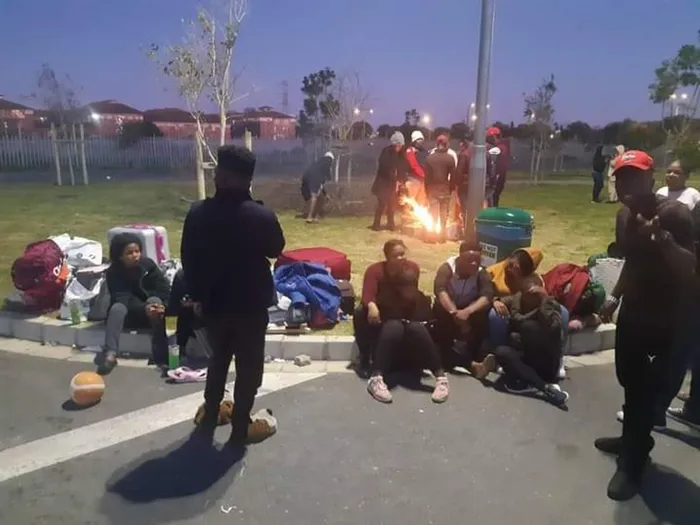UFS students ordered to leave campus within 24 hours after violent protests

UFS Qwaqwa campus students ordered evacuation within 24 hours amid protests.
Image: Supplied
The University of the Free State (UFS) has suspended all academic activities across its three campuses and ordered students at its Qwaqwa campus to vacate the premises within 24 hours, following a week of student protests linked to changes in the university’s financial support system.
The university confirmed that the decision to close the Qwaqwa campus “with immediate effect” came after violent incidents on the evening of October 13, when a group of students caused extensive property damage, engaged in acts of vandalism and arson, and left several security officers injured.
“Three of the injured security officers remain hospitalised,” said Senior Director in communication and marketing at UFS, Lacea Loader.
“The university strongly condemns the violent and destructive behaviour displayed during these incidents.”
The Executive Management Committee (Exco) said it is “deeply concerned about the situation on the Qwaqwa Campus” and is currently assessing the full extent of the damage. UFS Protection Services are continuing to monitor the situation to ensure the safety of remaining staff and students.
While all lectures on the Bloemfontein and South Campuses have been suspended until further notice, limited movement was allowed between Tuesday 7pm and Wednesday 7am.
The unrest stems from the university’s decision to phase out provisional registration and introduce a “fairer, more equitable, and sustainable financial support system” from 2026.
The UFS said that, under the new system, academically qualifying students will only be fully registered once their fees or funding have been confirmed, a move it says will “provide greater certainty about registration status” and help address mounting student debt.
“For many years, the UFS was the only university in South Africa that allowed students to register while they still had outstanding fees,” Loader said.
“However, there are deep concerns about the rising levels of student debt, which have amounted to close to a billion rand over the past five years.”
The university said that despite its historic commitment to access, provisional registration had proven unsustainable.
“In 2025, the majority of students who had registered provisionally and signed payment arrangements were unable to meet their commitments,” Loader said.
“This caused a high level of stress and uncertainty for students.”
UFS management emphasised that the new system was developed in consultation with the Institutional Student Representative Council (ISRC).
During a meeting on October 10, both parties agreed that the gradual phasing in of the new system “will NOT affect” NSFAS-funded students or those with smaller historic debts.
Students with debt of less than R30 000 will be allowed to register fully for 2026, provided that the first payment and historic debt are settled by May 30, 2026. Those with debts exceeding R30 000 will need to reduce them to qualify.
“Only 6% of currently registered students with outstanding fees will have to either obtain financial support in the form of bursaries or settle a portion of their fees,” Loader said.
To ease the transition, bursary applications for the 2026 academic year have already opened, and UFS will provide “targeted financial advising to help students manage their finances, apply for funding, and avoid registration-related crises.”
The university also dismissed false social media reports claiming a student was killed during the Qwaqwa protest.
“These reports are incorrect,” Loader said.
IOL News
Related Topics: